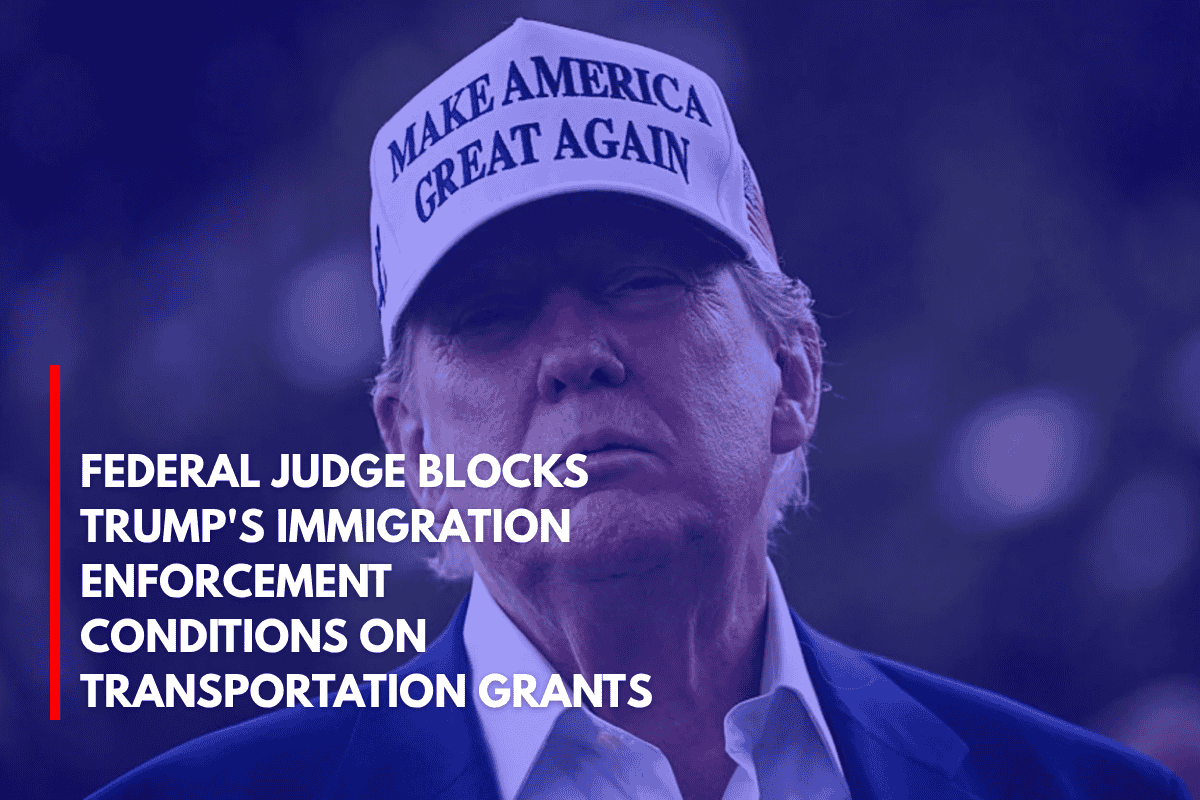A federal judge ruled on Thursday to block the Trump administration from requiring 20 Democratic-led states to cooperate with immigration enforcement in exchange for receiving billions of dollars in transportation grant funding.
Judge’s Ruling on the Injunction
Chief U.S. District Judge John McConnell, based in Providence, Rhode Island, granted the states’ request for an injunction, halting the Department of Transportation’s policy. McConnell stated that the states were likely to succeed in their case, agreeing that the administration’s actions likely violated legal principles.
The decision was made in response to a lawsuit filed by Democratic state attorneys general who argued that the administration was using federal funds as a tool to force the states to comply with Trump’s immigration policies.
The States’ Argument
The lawsuit contended that the Trump administration was unlawfully withholding federal funds as a means of pressuring the states to comply with immigration enforcement policies.
The states argued that U.S. Transportation Secretary Sean Duffy lacked the authority to impose immigration enforcement conditions on the funding, which had been appropriated by Congress to support state infrastructure projects such as roads, bridges, and highways.
Trump’s Immigration Agenda and Sanctuary Jurisdictions
Since his return to office in January 2021, President Trump has signed several executive orders that sought to cut federal funding to sanctuary jurisdictions—local governments or regions that do not fully cooperate with U.S. Immigration and Customs Enforcement (ICE). These jurisdictions typically limit or prevent local law enforcement from assisting with civil immigration arrests.
The Justice Department has filed multiple lawsuits against these sanctuary jurisdictions, including those in Illinois, New York, and Colorado, accusing them of obstructing federal immigration enforcement.
The Issue at Hand: Funding and Immigration Enforcement
The legal challenge before Judge McConnell stemmed from a notice issued by Secretary Duffy on April 24, which warned states that they could lose transportation funding if they did not cooperate with federal immigration enforcement, particularly with ICE.
The states argued that this policy was unconstitutionally vague, as it failed to clearly define what “adequate cooperation” with federal immigration enforcement would look like.
The Trump administration, on the other hand, argued that the policy was within Duffy’s discretion and that it was appropriate to require states to comply with federal law in order to receive federal funding.
Ongoing Legal Challenges
This ruling comes as part of an ongoing legal battle. The 20 states involved in this case are also separately challenging a similar set of immigration enforcement conditions imposed on other grant programs by the Department of Homeland Security. This challenge is also taking place in Rhode Island.
In light of this ruling, the legal landscape surrounding the Trump administration’s efforts to leverage federal funds for compliance with its immigration policies remains in flux, with continued lawsuits likely to shape the final outcome.











Leave a Reply